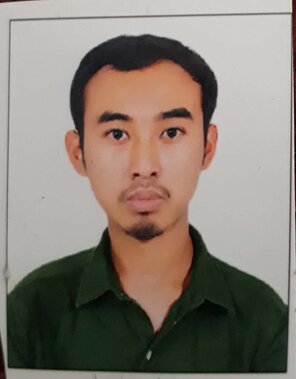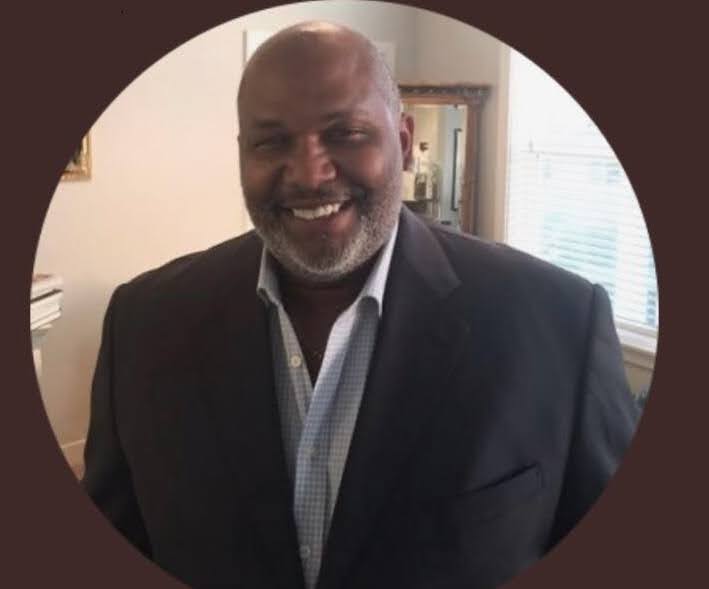I recently had the pleasure of talking to Tennessee Titans wide receiver Rashard Davis. I was able to learn many things about him, his journey, and ultimately what the road can be like for many aspiring athletes. But first, here’s a summary of his football career so far.
Background
Rashard Davis grew up in Charlottesville, Virginia, playing his high school ball at Charlottesville High School, where he was a standout athlete. During Rashard’s senior season, he threw for 1,074 yards and 15 touchdowns while racking up an additional 1,383 yards and 17 touchdowns on the ground. His final season earned him First Team All-District honors as an athlete. He was also Second Team All-District at quarterback.
College Career
Rashard ended up signing his national letter of intent to play for James Madison University (JMU).
Freshman
In Davis’ freshman season, he played in 12 games, making one start. He recorded 12 receptions for 173 yards and also carried the ball for 124 yards and a touchdown on eight rushes. He recorded 159 yards on eight kick returns on special teams.
Sophomore
In 2014 as a sophomore, Davis appeared in 12 games, catching 21 passes for 254 yards and two touchdowns while recording 22 yards rushing and a score on six attempts. He also had six kick returns for 102 yards and three punt returns for 44 yards.
Junior
As a junior he played in 11 games, making nine starts at slot receiver. Davis posted 39 receptions for 592 yards and six touchdowns, adding 48 yards rushing on eight attempts. He returned five kicks for 102 yards and one punt for 16 yards. Rashard finished the season eighth in the conference with 53.8 receiving yards per game, while also ranking third in receiving touchdowns and fourth in yards per catch (15.2). However, the country had yet to see the best of the speedy receiver.
Senior
As a senior he played in all 15 games, recording 12 starts. Rashard set JMU and CAA single-season records with an FCS-best four punt returns for a touchdown. Davis returned 15 punts for a JMU single-season record of 426 yards and four scores. He also tallied 42 receptions for 530 yards and three touchdowns. He broke a conference record with a 72-yard punt return for a touchdown in the FCS quarterfinals against Sam Houston State. Davis caught three passes for 52 yards and a touchdown in the NCAA Division I National Championship game against Youngstown State.
JMU won that game 28-14, bringing the first national championship in program history back to campus. Davis received the Challace McMillin Special Teams Player of the Year. After the season, he was a part of the Associated Press All-FCS second-team as an all-purpose player. He was also a CAA Special Teams Player of the Year.
Professional Career
2017
On August 13, 2017, Davis signed with the Philadelphia Eagles as an undrafted free agent. Although Rashard did not garner much playing time during his rookie season, he was still able to earn a Super Bowl ring with his team’s victory over the New England Patriots in Super Bowl LII.
2018-19
In the 2018-19 season, Davis spent time on the practice squad for the Eagles and the Raiders before being waived the following offseason. Shortly after the Raiders let him go, the Kansas City Chiefs were there to pick him right back up. He was able to train all summer before his release after the pre-season was over.
2019
On October 15, 2019, Rashard was chosen with the first overall pick in the skill players portion of the 2020 XFL Draft by the DC Defenders but did not sign with the league. Since this league was more of a developmental league for players looking to make it back to the pros, Rashard never had the opportunity to suit up. Instead, the Tennessee Titans chose to sign him, finally landing with a team that was a fit for him.
On December 23, 2019, he was promoted to the active roster, where he would finally get to make his professional debut. Finally getting to step onto an NFL field in live-game action, Davis made the most of his opportunity. In his debut, Rashard was able to catch his first pass, gaining 16 yards and returned two punts for nine yards against the Houston Texans in a 35-14 win.
When I spoke to Rashard, he was very positive, embracing all the bumps in the road he has faced along the way.
Simpson: I know the whole process can be complicated when you first come into the league. Starting in Philadelphia and then ending up in Oakland and Kansas City, some things haven’t worked out in your favor. With Tennessee, everything seemed to click for you. What has that taught you?
Davis: I’ve learned that throughout the process, you have to just control what you can control, and you have to stay patient with it. You have to find your spot with the right team. At this level, everybody can go out there and make plays. You just have to find the right team and have an opportunity come open at the right time.
Simpson: Sometimes, it just takes the right fit. I don’t know if you’re familiar with the Raheem Mostert story. He bounced around, playing for six teams, and then all of a sudden with San Francisco, he tears it up.
Davis: He went crazy. Dude found the system that was perfect for him.
Simpson: So you played quarterback in high school. Were you exclusively a quarterback, or did you do a bit of everything?
Davis: My senior season, I played defensive back too, but I did mostly play quarterback my 12th-grade year. I did play some running back and receiver, so I guess you could say I was an athlete. My cousin, who was a grade below me, he played running back my 12th-grade year. He was the starting running back, and I was the starting quarterback, and the coach wanted to keep the ball in our hands and let us make the decisions each and every play.
Simpson: How did that make for the recruiting process? Were JMU and the other schools recruiting you as a defensive back or a wide receiver or what?
Davis: That made my decision a little bit different. I had UVA wanting me to walk on as a receiver, Virginia Tech wanted me to walk on as a quarterback, Georgia Southern offered me a scholarship as a quarterback, Liberty offered me as an athlete. A few other schools wanted to offer me as a receiver, and so did JMU. When I went on my visit there, I fell in love with the campus and the coaches.
I wanted to be a quarterback because I liked the position, but I could barely see over my offensive line in high school (he’s 5’9), so I knew I wasn’t going to be able to see over my offensive line in college. I liked being a wide receiver because I like to score touchdowns, I want the ball. It was tough figuring out where I wanted to go to. Obviously, it’s a big decision. But when I went to JMU, they made it a lot easier for me.
Simpson: If you have never been a part of the recruiting process to play college sports, you may not understand how the recruiting process is sometimes. It’s not just about playing time or how good the program is, it’s about falling in love with the campus or an idea that the coaches present to you as far as their vision for you.
Davis: There’s definitely a lot that goes into it. Not just the school or the football team itself. There’s a lot of factors that go into it.
Simpson: I remember watching you play in and win the FCS title game. What did it feel like to be a champion?
Davis: That was surreal man. Leading up to that season, we had a few opportunities where we possibly could have made it. Things didn’t work out in our favor. But being able to score in that game and being able to hoist that trophy in front of all the fans, it was just a surreal moment altogether. It’s definitely a time we won’t forget.
Simpson: When your playing days came to an end at JMU, did you expect to be drafted? Did you get any feedback from NFL teams?
Davis: To be honest, I felt like I was either going to get drafted or picked up right after. I had 28 of the 32 teams contact me, leading up to the draft to make sure my number was correct and that I was healthy. I had Pittsburgh and Chicago reach out to me. They told me they might pick me up late in the draft or maybe right after, so I felt like there was a possibility that I could get drafted or get signed right after.
Simpson: Your first stint was with the Eagles. How long after the draft did Philidelphia reach out?
Davis: Right after the draft, Pittsburgh, Chicago, and the Jets contacted me for a rookie minicamp. I went to Chicago and New York, and it didn’t end up working out. I went back home and trained over the summer, and I had gotten a job at a restaurant. So I was waiting tables, and I would train after work or before work. One day I was at work, and Philly had contacted me, but I missed the call. I listened to the voicemail and called them back, and they wanted to bring me in for a workout the next day.
Simpson: Did you leave work right after you talked to them?
Davis: I ended up finishing my last table before I left. My co-worker went up to the table and told them they needed to wrap it up because my boy has a workout tomorrow. All I could think was, “Bro, you gotta relax.” It ended up working out. I got on a flight the next morning, and everything worked out.
Simpson: How would you describe your rookie season with the Eagles?
Davis: Going through college and having three different head coaches, I learned to adapt to adversity. I had to adapt to a new coaching staff each time. It made it easier to go to Philly and adapt to that playbook and get acclimated.
Simpson: I know in many cases, a position coach or coordinator will be the guy after a particular player. Since you had three different head coaches, were any of the guys that recruited you still there after your freshman or sophomore year.
Davis: No, it was a whole different coaching staff. It was a complete wipeout.
Simpson: That can be tough. You’ve got guys that like and recruit you, and they are the ones that sell you on the program. You’re fortunate that you were able to receive playing time. It worked out in the long run since you were able to win a national championship, but it doesn’t always work out that way.
Davis: That is definitely true. That brings me back to what I said about being patient. You have to stay the course. When the second coach came in, I was the fourth-string receiver. I kept doing what I was doing, and the game came around. The starter got hurt, and I ended up starting that week, and I had two touchdowns for 125 yards on receptions.
Simpson: Sounds like you needed that chance.
Davis: Exactly. That’s all it is. That’s one thing I learned along the way. You have to control what you can control. You can’t let it stress you out.
Simpson: I know you said you were not doing the XFL, but you were the number-one overall pick in the skill position draft. I know it’s not the NFL, but how did it come about?
Davis: A guy from the DC team used to be my quarterback at JMU. He had moved to Richmond, which is 45 minutes from Charlottesville, and we had started meeting up once or twice a week to throw. I got in contact with one of the coordinators, and they asked me to send them some film. They liked it a lot, and they had one more workout before the draft. They told me to come up so they could see me in person, so I went up there and killed the workout. I was told to stay by the phone on draft day, and they told me it was a possibility and that they had the number-one pick. I didn’t know for sure that they were going to draft my number one. Then I saw my name come across the screen as the first pick. It was pretty dope.
Simpson: What was the main reason it fell through, or you chose not to go forward with it? Was it how things were going with Tennessee?
Davis: Yeah, that’s what it was. The main part for the XFL is to make it to the NFL or make it back to the NFL. I wanted to show Tennessee that I could play, and I made some plays in practice against the starting defense. Going into the Houston game and I played at punt returner and had a big third-down catch. I didn’t want to go to the XFL and risk an injury, being that I’m already on an NFL roster. I talked to the family about it, and we decided not to do it.
Simpson: Injuries happen too often and it is unfortunate. As you said, the biggest goal when playing in the XFL is making it to the NFL. I know these decisions weigh on you, but I doubt you had to think about this one too long.
Davis: Yeah, it wasn’t too hard of a decision. Since we made it so far (into the postseason), I wouldn’t have had much of a break. Then the pros outweighed the cons and the risk of injury.
Simpson: Once the season is over, the teams normally extend the future/reserve contracts. Do you think you’ll be back in Tennessee next year?
Davis: I’m going to talk to the general manager and the receivers coach. They are both very adamant about getting me back for next year. With me coming in in the middle of the season and picking up the playbook as fast as I did, I was able to step in when the opportunity presented itself and fill in for the guy that was hurt. They told me to be ready to work.
Simpson: I know you’re a busy guy so I don’t want to take up any more of your time. But what would you tell a young athlete or young version of yourself to stay focused on this journey?
Davis: I would tell them to work hard in every situation, keep your head down, try to cancel out all the factors you can’t control. One day you’re going to get your shot. It’s just a matter of time and when you do get your shot, take everything you practiced and worked so hard to do and put it all into motion.
Follow me on Twitter @Alex2TheSimpson for more of my content and follow @OT_Heroics!
Discuss this and everything to do with sports at the Overtime Heroics forums!
Be sure to check out our partners at Repp Sports! They offer the first-ever crowd-sourced, no carb, no sugar, energy drink called RAZE, and much more! Use the link above or add the promo code OTH1 at checkout to get 30% off your order!





